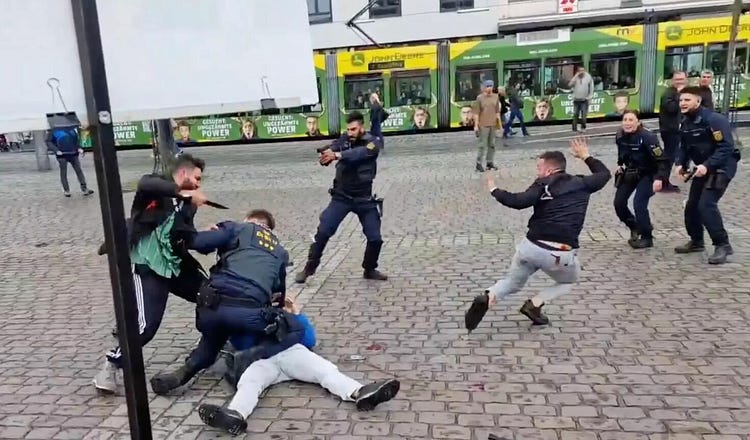Islamists Keep Stabbing People. Why Aren’t We Talking About It?

Screen grab of the stabbing attack in Mannheim, Germany, May 31, 2024. (via X)
Many in the West seem resigned to violence that once shocked us.
472
Last week, a 25-year-old Afghan man went on a stabbing spree in a marketplace in Mannheim, in southwestern Germany, killing a police officer and wounding five other people.
In a video of the attack, the man, whose name has not been released, can be seen repeatedly stabbing several people—including the police officer, in the back of his head and neck—unti…
Continue Reading The Free Press
To support our journalism, and unlock all of our investigative stories and provocative commentary about the world as it actually is, subscribe below.
$8.33/month
Billed as $100 yearly
$10/month
Billed as $10 monthly
Already have an account?
Sign In

